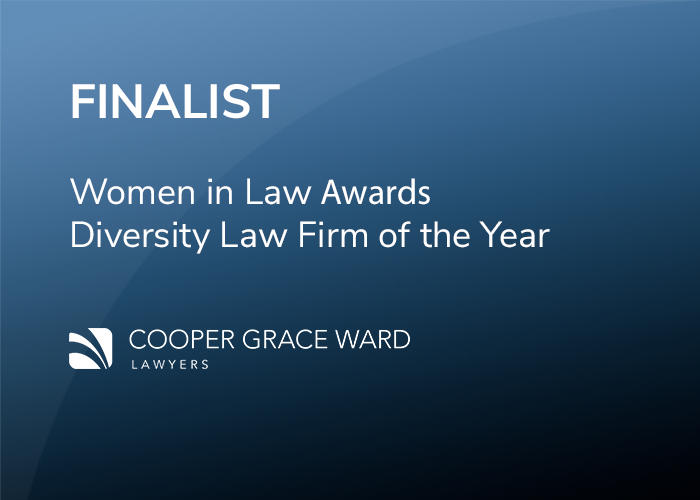The Sustainable Planning and Other Legislation Amendment Bill 2012 (Qld) (SPOLA Bill) was passed by parliament on 13 November 2012, after recommendations for change made by the State Development, Infrastructure and Industry Committee (Committee) were adopted. The SPOLA Bill was introduced on 13 September 2012, as part of the Newman government’s primary commitment to cut red tape and grow the four pillars of the economy for Queensland.
The Sustainable Planning and Other Legislation Amendment Act (No. 2) 2012 (SPOLAA) was assented to on 22 November 2012, and was passed with some significant changes to the SPOLA Bill. A further amendment to the Sustainable Planning Act 2009 was passed on 1 February 2013, which outlines the circumstances where an adopted infrastructure charge cannot be levied. This amendment was made as part of the consequential amendments required for the purposes of the Economic Development Act 2012.
Most of the provisions of the SPOLAA commenced on assent, however particular provisions commence on a date that is to be fixed by proclamation this year. The provisions reforming the Planning and Environment Court’s (Court) costs regime and the changes proposed to the role of the Alternative Dispute Resolution (ADR) Registrar commenced on assent. The provisions relating to the state referral and assessment regime will commence by proclamation.
Below is a summary of the major amendments to the SPA:
1. COSTS IN THE PLANNING AND ENVIRONMENT COURT
1.1 The Court, along with many other jurisdictions, has inherently always been a no costs jurisdiction. The SPOLA Bill originally proposed to change the costs jurisdiction from costs being born by each of the parties to a regime where costs ‘follow the event’. This change would have resulted in the party who lost the proceedings being automatically liable to pay the other parties costs (subject to the Court’s discretion).
1.2 The amendment to the costs provisions was one of the most controversial aspects of the SPOLA Bill, and caused significant concern, particularly within the legal profession. This was primarily due to the disadvantages to smaller scale applicants, local governments, residents and community interest groups. There was also concern with respect to the uncertainty that would be generated for litigants in terms of risk assessment and the generation of further legal argument as to what would constitute the ‘event’.
1.3 The SPOLAA was passed with quite significant changes to the costs provisions, being the removal of the wording that costs are to ‘follow the event’ unless the Court orders otherwise. The changes to the SPOLA Bill were a result of a significant number of submissions and evidence put before the Committee by submitters. There was substantial concern that the costs rules as proposed by the SPOLA Bill excessively restricted the Court’s discretion in ordering costs in proceedings.
1.4 The new section 457(1) of the Sustainable Planning Act 2009 (SPA) states that ‘costs of a proceeding or part of a proceeding, including an application in a proceeding, are in the discretion of the Court.’ The SPOLAA reinstates the Court’s discretion when making an order for costs and sets out a non-exhaustive list of 13 matters that the Court may take into consideration when determining an application for costs. The matters listed in section 457(2) of SPA include the following:
(a) the relative success of the parties;
(b) the commercial interests of the parties;
(c) whether proceedings were commenced or participated in for an improper purpose (such as commercial competitors);
(d) the reasonable prospects of success;
(e) whether the decision on a development application conflicts with a planning scheme, and whether there were sufficient public interest grounds to warrant an approval (such as an appellant who proceeded with an appeal with the knowledge that a conflict with the planning scheme needed to be overcome);
(f) the effect of any minor change application in the proceeding;
(g) whether the proceeding involved an issue that affects, or may affect, a matter of public interest, in addition to any personal right or interest of a party to the proceeding;
(h) whether a party has acted unreasonably leading up to the proceeding;
(i) whether a party has acted unreasonably in the conduct of the proceeding (such as not giving the other party sufficient notice of the intention to adjourn the proceeding);
(j) whether a party has incurred costs because another party has introduced or sought to introduce new material;
(k) whether a party has incurred costs because another party has not complied with the provisions of SPA or another Act;
(l) whether a party has incurred costs because the other party did not follow the Court’s procedural requirements (such as the late provision of draft orders); and
(m) whether a party should have taken a more active part in the proceeding and did not do so.
1.5 Overall, the Court has been reinvested with its general discretion to award costs. Whether any of the matters set out in section 457(2) of SPA are relevant will largely depend on the facts and circumstances of each case and the evidence that is put before the Court.
1.6 The only proceedings in which costs will follow the event (unless the Court orders otherwise) are enforcement proceedings pursuant to section 601 of SPA (which, in the usual course of events, are generally initiated by local governments).
1.7 If a proceeding is resolved early through the ADR process, then each party to the proceeding must bear the party’s own costs (unless the Court orders otherwise).
1.8 Under the transitional provisions the former costs provisions will continue to apply to proceedings that were commenced before the SPOLAA was passed.
2. WIDENING THE SCOPE OF MATTERS THAT MAY BE REFERRED TO THE ADR REGISTRAR
2.1 The SPA now includes a new section 491B, which provides that specific powers of the Court will be exercised by the ADR Registrar (including the hearing and deciding of matters on the basis that each party bear their own costs).
2.2 The Chief Judge of the District Court has the power to make directions about the powers of the Court that may be exercised by the ADR Registrar. The Court may also direct the ADR Registrar to hear and decide particular matters of a minor nature (which will avoid the time and expense of going through a trial and the imposition of an adverse costs order). The powers of the Court are likely to include procedural type matters such as minor change applications, permissible change applications and the exercise of the Court’s discretion regarding lapsed development approvals.
2.3 The Court will need to address issues associated with the resourcing for the ADR Registrar to ensure that the Registrar may ‘act as quickly, and with as little formality and technicality’ in order to encourage the early resolution of matters and to fulfil its expanded role.
3. CHANGES TO THE STATE REFERRAL AND ASSESSMENT REGIME
3.1 One of the other major amendments proposed by the SPOLA Bill was the state government’s role in assessing and determining development applications in particular circumstances.
3.2 This has been achieved by the introduction of a new Chapter 6, Part 1, Division 4, Subdivision 2A, which relates to the Chief Executive assessing particular applications as the assessment manager or a referral agency. The amendments make the Chief Executive administering SPA the single state assessment manager or a referral agency in particular circumstances.
3.3 This means that there will be one single state referral agency. If a referral agency is overlooked during the development application phase, the onus will now be on the state.
3.4 The Sustainable Planning Regulation 2009 will be amended to prescribe matters that the Chief Executive may have regard to when assessing a development application.
4. REMOVAL OF MASTER PLANNING AND STRUCTURE PLANNING UNDER SPA
4.1 The SPOLAA repealed Chapter 4 of the SPA, which formally provided for planning and partnerships through the making of master plans and structure plans.
4.2 This amendment was strongly supported by peak planning institutions. However, some local governments opposed this change, and particular concern was expressed with respect to the relationship between section 242 preliminary approval applications being strategically used by developers to circumvent the appropriate provision of infrastructure.
4.3 The proposed amendments were retained with minor modifications, which make it clear that preliminary approvals will not have to undergo public notification in most circumstances. The public notification requirement is waived where an application for a section 242 preliminary approval is:
(a) substantially consistent with the structure plan area code or is included in the structure plan for the area;
(b) substantially consistent with the master plan area code included in a master plan that applies to land or part of the land in an area; and
(c) not seeking to vary the type of assessment for development (or if it does, it only changes the type of assessment from code assessment to self-assessable development, development requiring compliance assessment or increases the level of assessment for development).
4.4 Local governments have three years to amend their SPA planning scheme or make a new SPA planning scheme to incorporate existing or draft structure plans.
5. REQUIREMENTS FOR PROPERLY MADE APPLICATIONS
5.1 The requirement for an applicant to provide evidence of entitlement at the development application phase has now been removed. The intention of the amendment is to ‘decouple’ the resource allocation or entitlement process as separate from the development assessment process. An applicant will now be in a position to either seek an allocation or entitlement before, during or after the IDAS process.
5.2 The assessment manager now has the discretion to accept development applications that have sufficient information for assessment as being properly made (the intention being to streamline the development application process). This new discretion of the assessment manager will hopefully streamline the development application process for those applications that required mandatory supporting information that may not have necessarily been required to assess the impacts of the proposed development in the first instance. The Committee has recommended that guidelines be developed to provide consistency in terms of what information the assessment manager requires for a development application to be adequate for assessment.
6. Conclusion
6.1 It will be interesting to observe how the Court applies the new costs powers under section 457 of SPA and how the Court will exercise its new discretion. It will also be interesting to see whether the parties to a proceeding will make the most of the extended powers of the ADR Registrar and the impact this will have on the efficiency of proceedings being resolved expeditiously.
6.2 The changes to the SPA have most certainly been welcomed by industry and key stakeholders. The changes are definitely a step in the right direction to detangle the sometimes complex assessment process. This is particularly so with the new single state referral and assessment regime.
6.3 If you are lodging a development application or considering filing an appeal in the Planning and Environment Court, you should consider obtaining legal advice, especially in relation to costs.
6.4 Should you have any queries, please do not hesitate to contact our team on +61 7 3231 2444.




